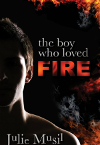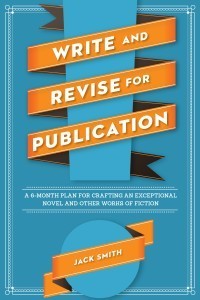Riley Adams's Blog, page 129
September 20, 2014
Twitterific Writing Links
by Elizabeth S. Craig, @elizabethscraig

Twitterific links are fed into the Writer’s Knowledge Base search engine (developed by writer and software engineer Mike Fleming) which has over 23,000 free articles on writing related topics. It’s the search engine for writers.
Think big as you revise your manuscript with these 9 steps: http://ow.ly/Bruvm @onewildword
Bookstores live: Secrets of the stores saving the book world: http://ow.ly/BrujX @salon
The importance of prewriting: http://ow.ly/BI3YG
7 Ways to Expertly Edit Your Own Writing: http://ow.ly/Btfuz @KMWeiland
Spark up Your Story – Adding Suspense, Tension & Intrigue: Handout http://ow.ly/Btg6G @JodieRennerEd
How to publish ebooks: the beginner’s ultimate guide: http://ow.ly/Btfvp @Roz_Morris
Kevin Spacey’s Top 3 Tips For Better Storytelling: http://ow.ly/Btfnh @foxbusiness
Create a rom com storyline in 5 easy steps: http://ow.ly/Btg8T @AnthonyEhlers
3 Easy-to-Use Tools to Count Your Words: http://ow.ly/BtfAj @joebunting
Which is better: – a Facebook page or a Facebook profile? http://ow.ly/BtfxO @ChilledCH
Overcoming perfectionism and finding the love of writing: http://ow.ly/Btg8g @sonyasigler
What Writers Should Know Before Attending a Workshop Retreat: http://ow.ly/Btggy @cynmrom
Using Questions To Expand Your Story: http://ow.ly/Btgb4 @nschmiedicker
4 Techniques of Effective Flash Nonfiction Writers: http://ow.ly/Btfo0 @the_artifice
Trees in Fantasy: Trees as Setting: http://ow.ly/Btgdn @SteffHumm
The Character Debate: Strong and Vulnerable? http://ow.ly/Btgmq @jamigold
Getting graphic with online tools: http://ow.ly/BtgPd @Gwen_Hernandez
Punctuation Personality Types – Which one are you? http://ow.ly/Bth2R @writers_write
Screenwriting Traits: — Flexibility: http://ow.ly/BtgMB @gointothestory
Men as Crit Partners: The Male POV : http://ow.ly/BtgGh @carynmcgill
How to Show Likeable Characteristics in Unlikeable People: http://ow.ly/Btgip @MSaintGermain
8 Marketing Don’ts: Get Real or Get Lost: http://ow.ly/BrtXO @srjohannes
The Difficulty Writers Have with Identity: http://ow.ly/BrthG @losapala
7 ways to beat procrastination: http://ow.ly/BrsU7 @jennaavery
Truth and Consequences of Traditional Publishing: http://ow.ly/BrsJR @DeAnnaMCameron
5 Self-Improvement Tips for Aspiring Writers: http://ow.ly/BrunY @grammarly
Self-Publishing for Graphic Novelists: http://ow.ly/BrtmP @BookWorksNYC
3 things self-published authors need to know about their audience: http://ow.ly/BruPG @chrisrobley
The Surprising Importance of Doing Nothing: http://ow.ly/Bru3W @RLLaFevers
Writing with a Day Job: http://ow.ly/BrtG8 @LoriRaderDay
Self-pub authors gain a store window with arrangement with Nook: http://ow.ly/BFvK2 @Porter_Anderson #FutureChat
Micro Manager vs. Macro Planner: Zadie Smith on the Two Types of Writers: http://ow.ly/BrtPL @brainpicker
How to write a bestselling novel: http://ow.ly/BruJg @guardianbooks
#FutureChat recap: Publishing innovation: http://ow.ly/BEHCE @Porter_Anderson @Roz_Morris
Ruminations on Exclusivity: http://ow.ly/BEH9e @HughHowey
5 Tips for Writing Faster http://ow.ly/BpaqC @NaliniSingh
6 Steps to Writing Success: http://ow.ly/Bpbnx @OrlyKonigLopez
5 Lifelines for Writers with Deadlines: http://ow.ly/BpaD9 @writers_write
Publishers: Base Your Business on Improved Access to Books: http://ow.ly/BEHs5 @Janefriedman Smart Set
A Simple Grammar Trick for Better Fiction: http://ow.ly/Bpb5g @MarcyKennedy
6 Tips for Troubleshooting the Novel : http://ow.ly/Bpb8M @manzanitafire
Awkward Author Photos: A Taxonomy: http://ow.ly/Bp9QT @TheBookMaven
Freelancing: Cold-Pitching a Story? The Secret Is in the Subject Line: http://ow.ly/BpaZ3 @contently
2 Questions Every New Author Asks: http://ow.ly/BpaKi @CaballoFrances
Should I Get an MFA? 27 Writers Weigh In: http://ow.ly/Bpbjm @heydonnelly
14 Questions People Ask Writers: http://ow.ly/BpbbC @nancyjcohen
Principles of storytelling- the inciting incident: http://ow.ly/BpaBL @nownovel
What It Really Takes to be a Writer: http://ow.ly/BpafP @sarahrcallender @writerunboxed
What You See is What You Get: —Describing Fictional Characters: http://ow.ly/Bp9BZ @btmargins
How to pitch a book: http://ow.ly/BkP7g
The Secret Sauce That Turns Stories Into Magic: http://ow.ly/BkPRf @storyfix
What Does Editing Look Like? Behind the Scenes: http://ow.ly/BkPtH @byondpapr
‘The Magrs Method’ for Book Reviewing: http://ow.ly/BkOHz @WorldLitCafe @CarrieGreenBook
Can Students ‘Go Deep’ With Digital Reading? http://ow.ly/BkN16 @mindshiftkqed
A closer look at the mystery genre: http://ow.ly/BkQkX @jenichappelle
Why beta readers are vital to your success http://ow.ly/BkPBt @standoutbooks
Anatomy of a Showdown: http://ow.ly/BkOxj @PAShortt
6 Great Apps to Help You Write: http://ow.ly/BkQdQ @sarahannjuckes
Self-Hosting Your Author Website: Why and How to Do It: http://ow.ly/BkMXI @Janefriedman
3 Techniques to Keep in Mind When Setting the Stage: http://ow.ly/BkPWM @jodyhedlund
Why won’t English speakers read books in translation? http://ow.ly/BkPLd @HephzibahA
Making Sense of Creative Writing’s Job Problem: http://ow.ly/BkOb3 @The_Millions
What to do about a negative review: http://ow.ly/BiBxs @Roz_Morris
The world’s best writers’ retreats: http://ow.ly/BiBJj
An agent on new trends in publishing: http://ow.ly/BiCj1 @MacGregorLit
How to Avoid Head-Hopping: http://ow.ly/BiBE5 @JodieRennerEd
Setting Your Own Standards of Excellence: http://ow.ly/BiCr9 @Author_DFarland
Accents, narrators and total silence: how you hear voices when you read: http://ow.ly/BiBWa @martabausells @guardianbooks
Author @JonathanMaberry ‘s call for author civility and positivity: http://ow.ly/BzdCi #PorterMeets @Porter_Anderson
Writing flashbacks: how to write them well – with examples: http://ow.ly/BiBv2 @standoutbooks
Most Common Writing Mistakes: Telling Important Scenes, Instead of Showing: http://ow.ly/BiBAy @KMWeiland
How to Write a Book: The 5-Draft Method: http://ow.ly/BiBQw @jeffgoins
HarperCollins Adds Another DRM Layer to eBooks: http://ow.ly/ByfRa @thDigitalReader
The Biggest Mistake New Writers Make and 5 Ways to Avoid It: http://ow.ly/BiBkK @annerallen
Konrath on the recent Authors United letter: http://ow.ly/Byf2y @JAKonrath
How Do You Define Credibility and Legitimacy as an Author? http://ow.ly/BiC52 @Martinthewriter
Uninspired? 5 things to try. http://ow.ly/BiBpT @crimsonhouseboo
Bookstore Shelves and Gatekeepers: Why 1 Writer Decided to Self-Publish: http://ow.ly/Bx7xM @charbrentwood
Self-entitled attitudes in crime fiction characters: http://ow.ly/Bvi37 @mkinberg
Benefits of a Pinterest business account: http://ow.ly/BelRH @lalewauthor
Amazon book blurb formula: http://ow.ly/Bel3l @badassmktg
A Quick and Dirty eBook with Calibre | Indies Unlimited http://ow.ly/BemCO
When writing is hard and we don’t want to work: http://ow.ly/Ben9g @andilit
Stop Overthinking and Just Write: http://ow.ly/Bempk @ava_jae
Great Character: Gamora (“Guardians of the Galaxy”): http://ow.ly/Ben3f @gointothestory
How to Be an Author Book Bloggers Will Love: http://ow.ly/BemXF @brrbach
Why Do Women Read More Novels Than Men Do? http://ow.ly/BwiFq @WarrenAdler
Handling deadlines: http://ow.ly/Bemc3 @jimchines
6 Problems With Realistic Space Battles: http://ow.ly/BelwG @mythcreants
The power of showing–writing what upsets us: http://ow.ly/Bvatj @JulieMusil @StephenTremp
Is Self-Publishing for You? Pros and Cons: http://ow.ly/Bv9BS @LyndaRYoung
The Value of “Pantsing : http://ow.ly/BelDn @InkyBites
How to Find Your Character’s Breaking Point: http://ow.ly/Bemkf @KMWeiland
Backlogged? Work Like You’’re Going On Vacation: http://ow.ly/Bemuz @99u
€œThe Libiro Platform Is Serving A Niche Market€�: http://ow.ly/BumG7 @Porter_Anderson @BenGalley
Why Every 1st Novel Should Be a Ghost Story: http://ow.ly/BcGvr @siobhanster
All the links I shared last week: http://ow.ly/Buwj6 . All the links I’ve ever shared (searchable) : writerskb.com .
How Much Should You Charge for Your E-Book? Ask These 7 Questions: http://ow.ly/BcHiO @ticewrites
Writers: How To Let Go Of The Pressure To Be Perfect: http://ow.ly/BcGq6 @writersrelief
So, Are You Working On Your Novel? Or Tweeting About Your Novel? http://ow.ly/BcH3N @NPR @WrknOnMyNovel
How to create your very own personal PR nightmare: http://ow.ly/BcHgO @badassmktg
The post Twitterific Writing Links appeared first on Elizabeth Spann Craig.
September 18, 2014
Prewriting
By Elizabeth S. Craig, @elizabethscraig
My entire family has suddenly become obsessed with pineapple. I don’t know what came over them. It’s like the pineapple fairy visited one night. And they want it fresh. Not canned or frozen (does it even come frozen)?
So…I started out by buying those containers of chopped pineapple at the grocery store deli. But I balked at paying $6 for a smidgeon of pineapple that the family consumed in less than a day.
Then I bought the formidable looking fruit whole. I looked up “how to cut a pineapple” online and the internet immediately coughed up a wiki-How thing with helpful pictures. However, this process involved a bit of brute strength on my part, a couple of very sharp knives (never smart for a clumsy person), and about thirty minutes since I still had to slice out the tough black “eyes” afterward.
I decided I wasn’t the kind of person to spend 30 minutes a day slicing pineapple.
I was back in the grocery store to glumly purchase $6 worth of pineapple when I passed a pineapple slicer at the store. It was $3.99. I bought it and left for home.
I’m not a mechanically minded person. But I tried. I cut the top and bottom off the pineapple, stuck the device on the top, and twisted. The pineapple fell over. I said some unpleasant words to the pineapple and stood it back up. This process repeated itself several times until the top of the pineapple became mush and my ire alerted my husband. He’s a computer engineer, and is definitely mechanically minded.
He carefully read the instructions. Then he experimented with the pineapple and the slicer. Magically, it cored and sliced the pineapple in about 30 seconds. My husband’s technique with everything is thoughtful, deliberate preparation. And everything he attempts goes well…if not on the first try, then on the next.
I’m an impatient person and I jump right in. It was this way for my writing for ages, too. I’d find 5 minutes and tear into the story. I had an idea where I was going, but I’d wander off where the story or characters led me, too.
Sometimes this worked really well. Sometimes it didn’t. The worst was when I ran into a huge issue and I was very close to a deadline. Sometimes I ran into plot holes or character motivation issues or other problems. I marked the manuscript with Word’s highlighter to indicate the moment in the manuscript where I fixed the issue and kept on moving forward (knowing this meant that I’d have to heavily revise the beginning up until that point).
I started trying more and more prewriting before starting new projects. Then I started doing more prewriting before my daily writing, too. I found it helped me clarify where I was going and added character depth to even the random suspects who are one-offs for each book.
This approach helped me write faster and cleaner with more character depth in the first draft. With the conflicting deadlines from several series, I needed the help.
My prewriting before each book:
An outline (very rough). Some call these beat outlines. Mine are sort of like: “and then this happened! And then that happened! And then….”
A character list with names and brief descriptions. As I add more character description, I add it to this list so that I can have some degree of consistency.
A bunch of lists. Lists of potential motives. Lists of possible murder methods. Lists of potential killers. Lists of potential second victims. Lists of settings I might want to use. You get the idea.
And then I jump right in.
Daily prewriting:
I get my head into the story before I sit down in front of the computer to write. While I’m fixing my coffee and letting the dog out in the morning, I’m remembering where I left off and the scenes I’m about to write.
I can still go where the story and the characters lead me. I just have a plan…one that can be deviated from.
How much, if any prewriting do you do (it doesn’t have to include outlining)? Are you a planner? Do you jump right in? Or is it a little of both?
Image: MorgueFile: Pippalou
The post Prewriting appeared first on Elizabeth Spann Craig.
September 14, 2014
Why Do Women Read More Novels Than Men?
by Warren Adler, @WarrenAdler
There is ample statistical evidence showing that adult women read more novels than men, attend more book clubs than men, use libraries more than men, buy more books than men, take more creative writing courses than men, and probably write more works of fiction than men. If, as a demographic, they suddenly stopped reading, the novel would nearly disappear.
A recent perusal of the New York Times fiction best seller list, scoring sales of print and e-books combined, showed that of the fifteen titles listed, eleven were written by women. Indeed, women are the bulwarks of the novel trade. Those statistics could lead one to also believe that the reason for such disparity is that stories told in novels, the characters, plots, insights, inner thoughts, experiences and wisdom offered are skewed to reflect a female point of view.
Even if you take Romance fiction out of the mix, formula romance and its many spinoffs, a surefire product targeted exclusively to women, women readers continue to outpace men. Having even moved into reading categories once considered strictly male turf, women readers and writers today are heavily represented across many genres from science fiction and zombie novels to mystery, suspense, horror, thrillers, military, including a myriad of other sub-genres.
Heroines abound, many created by men, including myself. My mystery series set in Washington D.C., features Fiona Fitzgerald, a female detective, and like Barbara Rose, in The War of the Roses, women emerge in strong roles in my writing. Gender, in my writing process, has little to do with marketing considerations. My creative subconscious and intuition demand it, and I am certain that female writers create male characters for similar reasons, however mysterious. So, most female authors do not write exclusively about women despite the fact that they have an overwhelming female readership.
Whatever publishing discrimination might have existed for women in the past, they obviously do not exist in the present. I’m inclined to believe that women, despite once being held back by education, custom and bias, and restricted to roles primarily as caregivers and nurturers, have surreptitiously dominated the market for novels. The creative urge operates outside the parameters of gender and, despite the restrictions, women have been writing and publishing novels from the moment the form emerged.
In the murky definition where the literary crosses swords with the popular, note the names of these authors; Dickens, Balzac, Bronte, Tolstoy, Lessing, Hemingway, Sands, Eliot, Austen, Proust, Shelly, Faulkner, Joyce, McCullers, Fitzgerald, Cather, Stowe, Wharton, etc., some female and some male. Their stories have been told from the point of view of both genders; stories that are about the human species and not confined merely to an isolated gender.
The gender of a novelist is irrelevant to their creativity. The criterion is talent, a mysterious and extraordinary gift that does not discriminate. A talented female author can find her way into the mind and heart of her male characters just as a male writer can do the same with his female characters. If there is some mythical dividing line between the insight, wisdom, and literary skill between men and women, it is not apparent to me. As for the reasons women dominate the reading market or perhaps the writing profession, I don’t have the answers – I can understand economic and opportunity parity, but not intellectual and artistic parity.
As a reader, I make my selections solely on the basis of which author moves me to enter his or her world, and follow the lives of their characters into the mysteries of their destiny. I hope the readers of my work feel the same way.
Why do you think women read more novels than men? Or will the question continue to baffle, like the mystery of love and attraction?
 Warren Adler is best known for The War of the Roses, his masterpiece fictionalization of a macabre divorce turned into the Golden Globe and BAFTA nominated dark comedy hit starring Michael Douglas, Kathleen Turner and Danny DeVito. In addition to the success of the stage adaptation of his iconic novel on the perils of divorce, Adler has optioned and sold film rights to more than a dozen of his novels and short stories to Hollywood and major television networks. In recent development are the Broadway Production of The War of the Roses, to be produced by Jay and Cindy Gutterman, The War of the Roses – The Children (Permut Presentations), a feature film adaptation of the sequel to Adler’s iconic divorce story, and Capitol Crimes (Sennett Entertainment), a television series based on his Fiona Fitzgerald mystery series.Adler’s forthcoming thriller Treadmill, is officially available. Learn more about Warren Adler at www.Warrenadler.com
Warren Adler is best known for The War of the Roses, his masterpiece fictionalization of a macabre divorce turned into the Golden Globe and BAFTA nominated dark comedy hit starring Michael Douglas, Kathleen Turner and Danny DeVito. In addition to the success of the stage adaptation of his iconic novel on the perils of divorce, Adler has optioned and sold film rights to more than a dozen of his novels and short stories to Hollywood and major television networks. In recent development are the Broadway Production of The War of the Roses, to be produced by Jay and Cindy Gutterman, The War of the Roses – The Children (Permut Presentations), a feature film adaptation of the sequel to Adler’s iconic divorce story, and Capitol Crimes (Sennett Entertainment), a television series based on his Fiona Fitzgerald mystery series.Adler’s forthcoming thriller Treadmill, is officially available. Learn more about Warren Adler at www.Warrenadler.com
The post Why Do Women Read More Novels Than Men? appeared first on Elizabeth Spann Craig.
September 13, 2014
Twitterific Writing Links
by Elizabeth S. Craig, @elizabethscraig
Twitterific links are fed into the Writer’s Knowledge Base search engine (developed by writer and software engineer Mike Fleming) which has over 23,000 free articles on writing related topics. It’s the search engine for writers.
New release last week: Death Pays a Visit is now available. :)
A writer on being plagiarized and how to respond: http://ow.ly/Bc5K5 @TheAubreyRose @passivevoiceblg
5 Cliche Endings: http://ow.ly/Bc5AC @grammarly
5 Ways to Get Book Reviews: http://ow.ly/Bc5xK @SashaLeighS
How to Write a Horror Story: http://ow.ly/Bc5Qz @harrington_jo
A Question to Ask Each Time You Sit Down to Write: http://ow.ly/Bc656 @joebunting
5 Book Pet Peeves: http://ow.ly/BcFZP @thebooksluts
6 Great Apps to Help You Write: http://ow.ly/BcG8P @completelynovel
Casablanca–script analysis: http://ow.ly/BcG2Z @thescriptlab
Quotations From Anne Lamott : http://ow.ly/BcGC6 @DeniseAAgnew
When To Let Go And How To Give Up A Writing Project: http://ow.ly/BcGue @moranchaim
Helpful Hashtags on Twitter: http://ow.ly/BcH5Y @SueColetta1
An Author Website Checklist: http://ow.ly/Bc5X6 @digibookworld
When Not “Earning Out” is a Good Thing: http://ow.ly/Bc5ZA @passivevoiceblg
Breaking Grammar Rules in Poetry: http://ow.ly/Bc6jZ @WritingForward
5 Protagonists Readers Hate: http://ow.ly/Bc5TY @annerallen
Tips for creating voice: http://ow.ly/Bc6ck @katrinakittle @writerunboxed
3 Tips for Getting Published: http://ow.ly/Bc69I @Michelle_Gagnon
The Value of Indie Print: Necessity, Choices and Costs: http://ow.ly/Bc5Cj @janice_hardy
Young People are Reading As much as Adults (Pew Study): http://ow.ly/Bq4qq @Goodereader
Which is Better: First or Third Person Point of View? http://ow.ly/Bo7Zl @jenichappelle
3 Acting Tips for Writing with Emotion: http://ow.ly/BbLjH @MarcieColleen1
Submission Tips for Writers: http://ow.ly/BbLCT @ChuckSambuchino
16 ways to drive a ghostwriter stark raving mad: http://ow.ly/BbLyv @Amabaie
Is your dialogue just characters talking? http://ow.ly/BbLim @standoutbooks
7 Health Tips for Writers Who Don’t Get Enough Exercise: http://ow.ly/BbLEs @QuipsAndTips
What Barnes & Noble is doing wrong: http://ow.ly/Brlvp @HughHowey
How to Write a Clean First Draft: http://ow.ly/BbLAQ @LynneCantwell
How To Use Pre-Orders: http://ow.ly/BbLns @susankayequinn
What 1 writer’s editing process looks like after 20 Novels: http://ow.ly/BbLvK @goblinwriter
Moving cookbooks online: http://ow.ly/Bq4ef @Porter_Anderson @csmcbride @AltaEditions
What is Word of Mouth� in Today’s World? http://ow.ly/Bqo91
Subplots And The Great Swampy Middle: http://ow.ly/BbLmj @woodwardkaren
Famous Writers on the Creative Benefits of Keeping a Diary: http://ow.ly/BbLwY @brainpicker
Crime Writer Karin Slaughter Versus The IRS (what it might mean for writers) http://ow.ly/Bq4vf @forbes @janetnovack
5 Key Things to know about personalizing your query: http://ow.ly/BbLhI @Janet_Reid
How to Make Sure Readers Don’t Close the Book: http://ow.ly/BbLiU @jamigold
The Key Differences Between Middle Grade vs Young Adult: http://ow.ly/BbiFb @marielamba @writersdigest
Clean Up Your Ebook Files With HTML: http://ow.ly/BbiOa @JordanMcCollum
3 Ways to Pare Down Your Prose: http://ow.ly/BbiwE @CKmacleodwriter
8 Writer Tips To Keep Your Butt in the Chair: http://ow.ly/BbiDD @JordanDane
Wattpad for Authors: 14 Tips: http://ow.ly/BbiHC @outaprintwriter
3 Writing Tips from George R.R. Martin: http://ow.ly/BbiBV @A_WritersStudio
On order of adjectives: http://ow.ly/Bbiu4 @xwaldie @slate
Voice and Structure: http://ow.ly/BbiJo @writerunboxed
5 Ways to Intentionally Improve Your Story’s Quality: http://ow.ly/BbiMG @thescalex
3 Things to Know Before Drafting a New Story: http://ow.ly/BbiPf @EmilyWenstrom
Staying in Your CharacterÂ’s’ Shoes: http://ow.ly/Bbirt @mythcreants
The Reader’s Emotional Journey http://ow.ly/BbiAA @DonMaass
Listen to Your Readers: http://ow.ly/BaRBc @birgitte_rasine
4 problems that arise when authors try too hard to evoke emotions: http://ow.ly/BaRt6 @Author_DFarland
The 2 Most Powerful Behaviors of Successful Writers: http://ow.ly/BaRqq @losapala
Script To Screen: “Aliens”: http://ow.ly/BaRyn @gointothestory
5 Things to Know About Writing for Magazines: http://ow.ly/BaRj3 @QuipsAndTips
How to draw a fantasy map: http://ow.ly/BaRdu from Clever Girl Helps
Hooking up the train cars of your story: http://ow.ly/BaRDq @MSaintGermain
Have You Orphaned Your Dialogue? http://ow.ly/BaRml @MarcyKennedy
Plot-driven or Character-driven: Does it Really Matter? http://ow.ly/BjfqV @jenichappelle
The Structure of a Short Story: The First Complication: http://ow.ly/BaRab @woodwardkaren
The ethics of beta reading: http://ow.ly/BaRgr @JordanMcCollum
Avoid Backstory Plot Holes: http://ow.ly/BaRnS @Diana_Hurwitz
R. R. Tolkien’s 10 Tips For Writers: http://ow.ly/BaR3H @galleycat
How to make your book FREE on Amazon (without using KDP Select): http://ow.ly/BgW6a @badassmktg
How to make readers care about an absent character: http://ow.ly/BjhsF @JulieMusil @TraciKenworth
Long flashbacks: http://ow.ly/B8rsm
A closer look: @ReedsyHQ plans to connect authors with editors, designers, and more: http://ow.ly/BjheS @Porter_Anderson @TheFutureBook
5 Ways Transmedia Can Help Scriptwriters: http://ow.ly/B90WM @nmfbernardo @bang2write
Dos and Don’ts of Deep POV: http://ow.ly/BjeHp @jenichappelle
How to Use Layers to Show Intense Emotions: http://ow.ly/B91lO @jamigold
In Praise of Slower Writing: http://ow.ly/B90q4 @RomanceUniv
How to Create a Believable World for Your Characters: http://ow.ly/B98ZU @WCWritingTips
5 Visual Content Tools for Writers (Plus Where to Find Free Photos): http://ow.ly/B90PB @NinaAmir
How To Plot A Character-Driven Story: http://ow.ly/B92pe @DelilahSDawson
9 Rules For Self-Editing: http://ow.ly/BgWeT @raquelbyrnes
10 Things You Don’t Need (To Be A Writer): http://ow.ly/B9270 @DelilahSDawson
5 Ways an Editor is Like a Dentist: http://ow.ly/B90Ah @byondpapr
The Nemesis Character Type in Your Story: http://ow.ly/B90KQ @CSLakin
Writers weigh in on the problem of missing publishing data: http://ow.ly/BgVYC @Porter_Anderson @nmhall @CarlaJDouglas
Balancing Your Writing Career: http://ow.ly/B98VB @StinaLL
Keep an offhand remark on hand: http://ow.ly/B91x6 @JoeMoore_writer
Public appeals in crime fiction: http://ow.ly/BdQYv @mkinberg
Swapping Fiction for Creative Non-Fiction: http://ow.ly/B6Uhb @WritersEdit
Techniques for Sales Success: http://ow.ly/B6Pxa @jamigold
5 Stages of Grief: When Bad Things Happen to Beloved Characters: http://ow.ly/B6P7Q @thebooksluts
Amazon: “The World’s Most Complicated Iceberg” : http://ow.ly/BejTz @Porter_Anderson @craigmod
Negative Capability: Definition and Examples http://ow.ly/B6QoG @epbure
Qualities of a Good Critique Partner: http://ow.ly/BdK88 @alexjcavanaugh
How to Become a Better Writer: http://ow.ly/B6OZo @WritingForward
4 Tips for Writing About Unfamiliar Character Issues: http://ow.ly/BdAIw @JulieMusil
The Right to be Spoiler Free: http://ow.ly/B6P4J @dearauthor
Visual Writing Prompts: The Rule of Three: http://ow.ly/B6Uef @megwolfewrites
8 Ways Authors Can Use Pinterest: http://ow.ly/B6QeK @wordsprof @wherewriterswin
10 Things You Need for a Southern Gothic Horror Novel: http://ow.ly/B6Prj @DelilahSDawson
How to Keep Writing? Break It Down. http://ow.ly/B6PfI @ClaireCookwrite @writerunboxed
Anoint Your Character with Inner Conflict, A Master Technique: http://ow.ly/B6Ql3 @writingeekery
Antagonist Backstory: http://ow.ly/B6Ppi
Your Main Character’s Job Is to Fall into Trouble: http://ow.ly/B6VGj @joanyedwards
12 Reasons to Scrap a Blog Post: http://ow.ly/B23Ne @lindadessau
How To Get Over A Fear Of Failure: http://ow.ly/B23i5 @woodwardkaren
The Difference Between Being Critiqued and Being Edited: http://ow.ly/B22Sx @Aimeelsalter
All the links I shared last week: http://ow.ly/BbLUV . All the links I’ve ever shared (searchable): writerskb.com .
The Hero’s Emotional Midpoint: http://ow.ly/B23Gz @HeatherJacksonW
Sacrifice, Boundaries & Reaching Our Dreams: http://ow.ly/B22Z9 @kristinlambtx
The post Twitterific Writing Links appeared first on Elizabeth Spann Craig.
September 11, 2014
What is “Word of Mouth” in Today’s World?
By Elizabeth S. Craig, @elizabethscraig
I read an interesting post on Sunday. It was from author Pedro Barrento for Indies Unlimited and titled, “Word of Mouth—An Urban Myth?” The post engendered lively comments from other writers. Barrento states: “…word of mouth in literature is a fantasy. It simply doesn’t exist.” He clarifies that he’s not including influencers, Amazon’s recommendation algorithm, etc. as word of mouth. He’s defining it as an actual verbal recommendation. Which, considering it’s called word of mouth, makes sense. He believes that while consumers may be influenced by others’ recommendations for music, they don’t buy long-form products like books based on recommendations. Or, they’re so slow to act on recommendations (slow to purchase, slow to read, slow to pass on a recommendation to others) that word of mouth isn’t a contributing factor to the meteoric success of some of today’s most popular books.
There isn’t (naturally! This is publishing we’re talking about) hard data on how readers discovered the last book they read. So instead, I thought I’d explore what word of mouth is today. I’m thinking that, as times have changed, the way we recommend products to others and influence purchasing has changed.
Word of mouth gets bandied around a lot as being key to sales. But it tends to frustrate writers because how can you spark word of mouth? How do we get people talking about our book? And is word of mouth only verbal in today’s world?
I think word of mouth is changing. I think now that it can mean recommendations from people we trust who share similar tastes. They may not even be people we know personally. To me, word of mouth has become “influence”. And the people who have influence over our buying decisions vary from reader to reader.
I’ve bought books based on recommendations while lurking on Facebook, book blogging sites, and Goodreads. These fellow readers don’t know me, but I know them… at least, I know our taste in books is similar.
What’s a 21st century word-of-mouth? I think that sometimes it is someone telling someone verbally or emailing a friend or family member about a book. I know I buy some of my books for that reason.
I think sometimes it means responding to a friend’s status update on Facebook: Anybody read a good book lately? I know I’ve recommended books in response to those types of updates (usually more than one book). And I know friends of friends have told me they purchased books based on my recommendations.
I think sometimes it means word of mouth from a friend on Goodreads or a book blogger. Maybe someone who is only a virtual friend. Maybe it’s someone who doesn’t even know you exist…but you agree with every one of their reviews and have never been let down when you’ve gotten a book recommendation from them.
I think sometimes it’s almost a viral thing, word-of-mouth. Like the 50 Shades phenom. I heard about that thing at book club, on the news, in the paper, and saw people reading it in doctors’ offices. You really couldn’t escape it. That’s the kind of thing that’s rare. Harry Potter also comes to mind, when it hit it big suddenly (or it seemed sudden to me at the time).
So how can we generate word of mouth? Obviously, the more people who get their hands on our books, the more chances we have that they will tell someone, post it on Facebook, mention it at their book club, or review it on Goodreads.
How do we get our book into the hands of more people? Same approach as always—write many (good) books. Keep prices reasonable and in line with other books in our genre. Maintain a social media presence so readers can find us.
And it’s true—it might take months for a reader’s recommendation of our book to spur another reader to actually purchase it. It might never happen. But, to me, what’s most striking about word of mouth these days is the reach of the recommendation. It has so much more power to influence purchasing than the word of mouth decades ago.
How about you? When you hear about the importance of word of mouth, what goes through your mind? Is word of mouth strictly verbal? Does it include social media? Does it include influencers we don’t have in-person friendships with? Could it even include recommendations from people we don’t know?
And…I had a book release Tuesday. :) Death Pays a Visit is now available.
Image: MorgueFile: TypeXNick
The post What is “Word of Mouth” in Today’s World? appeared first on Elizabeth Spann Craig.
September 7, 2014
4 Tips for Writing About Unfamiliar Character Issues

As I plotted my latest release, The Summer of Crossing Lines, I decided to give the main character a stutter. She’d be forced to do some dangerous and questionable things, and I wanted the character to have an extra layer of fear and frustration. My goal was to make this character believable, and to be respectful to people who stutter.
But…I had no experience with stuttering. Lots of research was in order.
If you’re writing about an unfamiliar issue, here are four steps you can take to get it right:
Visit blogs or online diaries. Simply Google your “issue.” One of the most personal aspects of my research involved reading through personal blogs and online diaries of folks who stutter. It gave me profound respect for them and their bravery. It also gave me insight into their personal fears and frustrations. I was able to channel their turmoil when it came to inner dialog. I got a real feel for their view on life and their condition, and how they view the people and the world around them. It also gave me a peek at their lingo.
Research the organizations dedicated to the issue. I spent a lot of time on The Stuttering Foundation web site. They had pages for parents, teens, adults, teachers, etc. This web site gave me a lot of helpful information, including when stuttering develops, what causes it, and ways to cope. It also lists famous people who stutter, including John Stossel, Carly Simon, and the late Marilyn Monroe. I learned that the stutter tends to disappear when the speaker talks quietly, or if they’re acting as a different character–which helped with dialog. Bits of this research made it into my novel.
Read fiction with characters who have the same issue. I searched Amazon for YA stories with a protagonist who stutters. Surprisingly, there weren’t many, which made me realize there was an opening I could fill. I read Tending to Grace, which was a great story. It taught me how to expand on my research and handle technical issues, like how to write a stutter. When we read similar books, we learn how other authors have handled the same situation.
Interview someone with experience. It’s amazing how personal stories can form our perspective. Whatever issue you’re writing about, chances are there’s someone out there who’s willing to share their experiences with you. These experiences can give a glimpse into their world, much like the blogs or online diaries.
Whatever issue we write about, there are plenty of resources available for research. The folks who live with these issues deserve accuracy, respect, and empathy. It’s our job to get it right.
Have you stuttered, or do you know someone else who does? Have you ever written about an unfamiliar issue? What was it? How did you make sure you wrote with accuracy? Any tips you’d like to add?

Julie Musil writes from her rural home in Southern California, where she lives with her husband and three sons. She’s an obsessive reader who loves stories that grab the heart and won’t let go. Her Young Adult novels, The Summer of Crossing Lines and The Boy Who Loved Fire , are available now. For more information, or to stop by an say Hi, please visit Julie on her blog , on Twitter , and on Facebook .
The post 4 Tips for Writing About Unfamiliar Character Issues appeared first on Elizabeth Spann Craig.
September 6, 2014
Twitterific Writing Links
by Elizabeth S. Craig, @elizabethscraig
Twitterific links are fed into the Writer’s Knowledge Base search engine (developed by writer and software engineer Mike Fleming) which has over 23,000 free articles on writing related topics. It’s the search engine for writers.
Writing the Perfect Description for Your Book: http://ow.ly/B0slv @shalvatzis
Agents Behaving Badly: http://ow.ly/B0spj @jamesscottbell
No Excuse Writing: http://ow.ly/B20Al @dibator @SouthrnWritrMag
Self-Publishing: The Scenic Route: http://ow.ly/B20fK @eileengoudge Rewriting: Longer, Faster, Harder: http://ow.ly/B1ZiW @mooderino
Favorite Opening Lines/Paragraphs: http://ow.ly/B21kd @thejordache
7 Ways to Create Empathy for your Protagonist: http://ow.ly/B20pi @PamMingle
Surviving Grimdark: Fantasy for the Squeamish: http://ow.ly/B206Q @Philip_Overby
On Writing Horror: Short Stories vs. Novels: http://ow.ly/B1ZI8 @amazingstories0
Tips on Synopsis Writing – Basics: http://ow.ly/B20U3 @pepperbasham
Using Lifes Hardships to Make You a Better Writer: http://ow.ly/B218u @AshleyRCarlson1
7 steps to developing a feature script you can shoot: http://ow.ly/B1Zqx @screencrafting @MichaelDiBiasio
Should you enter a writing competition? http://ow.ly/B1ZlK @standoutbooks
You Know Youre a Writer When You Procrastinate: … http://ow.ly/B200E @LynnHBlackburn
What is Crowdfunding And How Can It Work For Authors? http://ow.ly/B1ZTQ @pubslush
The Strongest Form of Characterization: http://ow.ly/B22MK @joebunting
How to Structure Your Reveals: http://ow.ly/B23RL @shalvatzis
Keep Your Characters Moving: http://ow.ly/B23sz @ava_jae
How to Keep your Story Moving and Your Character Believable: http://ow.ly/B23nj @beccapuglisi
An Unpredictable (and Fun) Trick to Keep Your Plots Unpredictable: http://ow.ly/B23xw @janice_hardy
Better With Age: Giving Elderly Characters the Spotlight: http://ow.ly/B237O @adearinthewoods
6 Marketing Tactics You Should Be Using: http://ow.ly/B0std @lukeofkondor @bang2write
The Opposite of Legacy: http://ow.ly/B0rMj @JAKonrath
A Conversation with Robert Falco, Translator: http://ow.ly/B0rYf @robert_falco @ReedsyHQ
Paperbacks Are Selling eBooks: http://ow.ly/B9fEk @Porter_Anderson @thoughtcatalog
4 Ways To Edit Your Book Back on Track: http://ow.ly/B0sCl @carlywatters
Free Screenwriting Resource: Movie Story Types: http://ow.ly/B0tcL @gointothestory
Getting into the book’s action: http://ow.ly/B0tpX @glencstrathy
21st century book publicists: http://ow.ly/B0sJ6
On Agency Clauses: http://ow.ly/B0rTf @passivevoiceblg
Book Sales in a Slump? Here’s Help. http://ow.ly/B0tjJ @christinenolfi
When does giving the reader what they want turn into clickbait? It’’s complicated: http://ow.ly/B0rxf @mathewi
These romance writers ditched their publishers for ebooks–and made millions: http://ow.ly/B0siF @passivevoiceblg
Some indie authors are finding their Amazon Publishing titles in local bookstores: http://ow.ly/B6OPv @TheFutureBook @Porter_Anderson
Why Reading and Writing are a Collaboration: http://ow.ly/AX3GJ @DrewChial
30 Websites for Indie Authors: http://ow.ly/AX49j @bookgal
Indie Authors: Using 99 Designs to Crowdsource a Cover: http://ow.ly/AX4Ty @sabsky
10 Ways To Look At Your Twitter Avatar: http://ow.ly/B6OE0 @Porter_Anderson @thoughtcatalog
Should authors review other authors’ books? http://ow.ly/AX5mM @IndieAuthorALLi
Book aggregators and distributors: A short primer | http://ow.ly/AX4mi @selfpubbootcamp
How to Turn Your Print Book into a Digital File: http://ow.ly/AX4rB @byondpapr
The Wake-Up Call: What it Means to Be A Self-Published Writer: http://ow.ly/AX5bC @nickthacker
Is your main character you? How to tell – and how to widen your character repertoire: http://ow.ly/AX5wz @Roz_Morris
7 Proven Steps to Improve Your Writing Immediately: http://ow.ly/AX3u8 @nickbrodd
Format a Book in Word: Footnote, Index & Bibliography: http://ow.ly/AX4C2 @PubMyBook
How to Develop and Use a List of Your Readers: http://ow.ly/AX4g0 @jimhbs
Your Characters’ Names: Do You Know Why You Chose Them? http://ow.ly/AX3gC @KMWeiland
The Value of Indie Print: Necessity, Choices and Costs: http://ow.ly/AUUpM
21 Tips for Creating a Successful Writing Collaboration: http://ow.ly/AUUm5 @HelenSedwick
Today’s Publishing Nightmare: Drowning in Indie e-Books… and The Way Out: http://ow.ly/AUUxp @claudenougat
Writer Despair: http://ow.ly/AUUCu @jimchines
5 Things to Avoid for a Pristine Query Letter: http://ow.ly/AUUej @FrugalBookPromo
Avoiding the Tar Pits of Fiction: http://ow.ly/AUUAl @jamesscottbell
Want to Write Better Dialogue? Break the Rules: http://ow.ly/AUTUV @write_practice
Why One Bestselling Author Decided To Start Self-Publishing: http://ow.ly/AUTXW @karentraviss
10 rules for writers: http://ow.ly/AUU7l @latimes
Don’t Let ‘Play-It-Safers’ Talk You Out Of Writing: http://ow.ly/AUUsV @adderworld
Pros And Cons Of Exclusivity with Amazon KDP Select and Kindle Unlimited: http://ow.ly/AUTR6 @thecreativepenn
Should All Your Minor Characters Have Arcs? http://ow.ly/AUUjr @KMWeiland
Character Voice Consistency: http://ow.ly/AUjk4 @AmberSkyeF
De-Stress Your Writing Life: Writing a Personalized Pep Talk: http://ow.ly/AUj5S @jessbaverstock
A Protagonist who doesn’t have a backstory? http://ow.ly/AUiWA @gointothestory
Advice for new memoir writers: http://ow.ly/AUjfR @tspoetry
Writing 3-Dimensional Characters: http://ow.ly/AUjbd @stdennard
15 Best Brainstorming And Mind-Mapping Tech Tools For Every Creative Mind http://ow.ly/AUj02 @lifehackorg
Your Ending Shouldn’t Make Your “Point”: http://ow.ly/AUiYh @cockeyedcaravan
Copyrights and Copywrongs: http://ow.ly/AUjcx @AuthorMelindaC
5 Powerful Writing Techniques That Bring Stories to Life: http://ow.ly/AUj7I @Nimpentoad
6 Questions to Ask Before Publicizing Your Book: http://ow.ly/AUjhH @utexaspublicist
Hyphenation and tech terms: http://ow.ly/AUj6z @CSLakin
Songwriting Tip: The Most Important Thing Is Everything: http://ow.ly/AUiXH @usasong
Serials–pricing, release schedules, finding readers: http://ow.ly/AUj8v @ClaraKensie
Your Novel’s Language: How Can You Beat the Blah? http://ow.ly/AW4n8 from Jack Smith
New Types of Author Events: http://ow.ly/AUhgy @agentsavant
5 Elements of a Writer’s Website: http://ow.ly/AUhav @WritersEdit
Why Your Writing Habits Are Stifling Your Creative Potential: http://ow.ly/AUgKX @amshofner
17 Services to Tweet a Book | Self-Publishing Review http://ow.ly/AUgsg @selfpubreview
On the Many Dreams of Writing: http://ow.ly/AUh6U @writerunboxed
Marketing Advice from a Publishing Pro: @JaneFriedman Shares Her Best Tips: http://ow.ly/AXeNg @CaballoFrances
Twitter Chats for Writers: http://ow.ly/AUgwM @K8Tilton
Secondary character scene stealers in crime fiction: http://ow.ly/AW509 @mkinberg
Self-Publishing and Writer Organizations: http://ow.ly/AUgVP @NMamatas @ElectricLit
How Writing and Gardening Overlaps: http://ow.ly/AUgly @womenwriters
A Day in the Life of an Acquiring Editor: http://ow.ly/AUgmR @TerriBischoff
5 tips to trim your writing: http://ow.ly/AW4gE @jemifraser @WriteAngleBlog
Using Split Screen for Editing: http://ow.ly/AUgPh
Writing with Scrivener Quick Tip: Using Word Count To Keep Motivated: http://ow.ly/AW32s @clarissadraper
Got writers block? Try this little trick. http://ow.ly/AUgC9
Maybe it’s time to rethink the relationship between intelligence and creativity: http://ow.ly/AUgyE @tannerc
The creative art of selling a book by its cover: http://ow.ly/ASD57 @mendelsund @NYTimes @xanalter
How to plot a character-driven story: http://ow.ly/ASCrL @glencstrathy
Back cover copy tips: http://ow.ly/ASCHl @woodwardkaren
8 Issues In Author Ethics: http://ow.ly/AVdo6 @janesteen @Porter_Anderson
The Magic Trick to Landing an Agent at a Conference (Hint: No Magic Involved): http://ow.ly/ASCPD @writerunboxed
What to do Before You’re Published: http://ow.ly/ASCKQ @JulieMusil
The Ultimate Guide to Working with Beta Readers: http://ow.ly/ASCJB @amshofner
The post Twitterific Writing Links appeared first on Elizabeth Spann Craig.
September 4, 2014
Readers and Self-Pub
By Elizabeth S. Craig, @elizabethscraig
As a writer who is both traditionally-published and self-published, I have an admission to make. I work very hard on my traditionally published books. But I work even harder on my self-published stories.
I’m not saying my self-published stories are better.
But I want to make sure that each element of every book is as good as I can make it. I don’t have a huge team behind me for my self-pub…I have a small one. And I don’t want to let the readers down. I feel more accountable. I feel determined to make sure the quality is as good and that my readers won’t notice a difference between series.
But what’s been amazing to me is that I haven’t gotten any feedback from readers regarding the fact that some of my books are trad-pubbed and some are self. I’ve seen no indication that they’re aware I am a hybrid writer.
I’ve never had a reader complain that they couldn’t find my Myrtle (the self-pubbed series) books at their local Barnes and Noble.
I’ve never had a reader specifically mention that the quality of my self-pubbed books is poorer than my trad-pubbed books, and if they’ve mentioned it in a review, I haven’t seen it.
The only times I’ve gotten feedback from readers are small complaints –and they were asking me to pass it on to the publisher. A few readers have asked why my Myrtle books aren’t available in large print (one of my trad-series is available in large print in libraries) and a few readers have asked why my quilting series and Memphis series aren’t available in audio like my Myrtle series are.
The couple of times I’ve emailed back to explain that I don’t own the rights to the quilting series or the Memphis series, it’s just frustrated/aggravated the readers. They don’t want the details and they don’t care about the details. They just want to vent and, ultimately, to get the format they’re looking for.
But here is my main thought, and I’ve been mulling this over a bit, recently. So…one of the main reasons I see from writers why they’re pursuing trad-pub is the distribution to bookstores. And I get great distribution and shelf placement with Penguin-Random House…on a tower near the café for the first month after release.
So…why don’t I get complaint emails from readers that they can’t find my Myrtle books in the Barnes and Noble? Because I do have a healthy number of readers for that series. Strong sales.
Is it because the readers who shop at physical stores only buy what’s in front of them at the store? They don’t check out my website? Penguin doesn’t list my Myrtle books in my bio, so they wouldn’t know about them from reading the trad-published books. This would mean I’m missing potential sales from dedicated bookstore shopper readers who simply aren’t aware that my Myrtle series exists (or, possibly, that the Memphis one does, since it’s under another name).
I would say that I don’t have any crossover readers from my trad-pub to my self-pub, but I know that’s not true. In my Amazon reviews for the Myrtle series, readers frequently mention my other series. So…are the majority of Amazon readers not shopping in the bookstores? Ever? Even though they clearly love books and reading?
Or are there just fewer bookstore shoppers altogether? And it doesn’t matter that my Myrtle books aren’t there?
I suspect that the lack of print distribution for my self-pubbed series at the Barnes and Noble doesn’t matter. The books are available in print—from Amazon. And I do get checks from CreateSpace each month…there are still readers wanting print.
But are they just getting most of their print books from Amazon now?
I used to go to the B&N all the time, but I haven’t been for a long while. However, I buy at least two or three books a week. Online.
How do you buy your books? How do you discover them? Thoughts on why I don’t hear from readers wondering why my self-pubbed books aren’t in the B&N?
The post Readers and Self-Pub appeared first on Elizabeth Spann Craig.
August 31, 2014
Your Novel’s Language: How Can You Beat the Blah?
Guest Post by Jack Smith
You have an interesting and compelling premise for your novel. Your logline is snappy and fetching. Your characters are complex with complex relationships between them. Your plot is lock-step, every thread tied up. Your setting is interesting.
Yet the writing itself isn’t working—it seems drab. A sample of ten to fifty pages will most likely not get past the agent or editor. Great idea, but needs considerable work. Give this thing some flair.
And so now is the time to do some major fine-tuning on the language itself.
What can you do? There are probably fifty things, but consider two general areas:
Look at the pacing of your novel. I wouldn’t call pacing “flow” exactly because sometimes you don’t want the language to flow smoothly—and it’s possible to think of flow in this restricted sense—but don’t. After all, you might go for intense at times: bang, bang, bang, with a strong beat to it. Even monotonous at times (though watch this) if it’s in keeping with the character, who is decidedly monotonous. Still other times, it needs to be jerky, reflecting the mood or feeling of a character who’s about to lose it. The pacing needs to reflect the mood of the passage, whether it’s character thought or action. And it needs to move readers, keeping them gripped. How do you manage this? Here are a few possible techniques:
o Try varying your sentences. Choose long sentences for one effect, short ones for a different effect. In a scene, characters might answer each other in abbreviated replies or in long-winded replies (not easily managed unless you’re going for irony of some kind). Either choice will affect the pacing to create the kind of mood and tone you’re after. Varying your sentences will also create interesting variety for your reader.
o Use repetition of words, phrases, and sounds. This knits the language together and works nicely if the words or phrases are interesting. The risk, of course, is phrases that just create dull repetition. For repetition of sounds, make use of assonance and alliteration. I especially find that alliteration goes a long way in creating the texture of the prose.
Look at the language itself. Does it have any flair, anything special about it, any interesting similes, metaphors, or analogies? Find ways to transform the writing so that it is colorful (anything but purple…) If the language is utterly quotidian, everything will be because this is the medium of the novel—language. I’ll back off on the figurative language suggestion and say that language which is highly specific and concrete—however the latter is achieved—goes a long way. It’s true that compelling imagery is often achieved by figurative comparison, yet well-chosen sharp detail can accomplish the same thing. Expository writing is particularly subject to dull language. Even if it’s character meditation, thought, and feelings of a sympathetic character, then the risk of mundane prose is ripe. To dress up internal “talk,” go for those concrete images as much as possible.
A novel with all the requisite ingredients—plot, character, setting—is only halfway there if the language itself gets in the way. The novel’s language needs to move readers. I’ve suggested only a few ways to fine-tune the novel’s language, but there are, of course, numerous things you can do. You can try stylistic elements like italics or capitalization; you can be creative with conventions such as quotation marks around dialogue; you can be elliptical in your narrative prose—as well as in your scenes. Do everything possible—that works, of course, with your particular novel—to charm your reader. Language is the medium.
Jack Smith is author of the novel Hog to Hog, which won the George Garrett Fiction Prize (Texas Review Press. 2008), and is also the author of Write and Revise for Publication: A 6-Month Plan for Crafting an Exceptional Novel and Other Works of Fiction, published earlier this year by Writer’s Digest. His novel ICON will be published in June by Serving House Books.
Prize (Texas Review Press. 2008), and is also the author of Write and Revise for Publication: A 6-Month Plan for Crafting an Exceptional Novel and Other Works of Fiction, published earlier this year by Writer’s Digest. His novel ICON will be published in June by Serving House Books.
Over the years, Smith’s short stories have appeared in North American Review, Night Train, Texas Review, and Southern Review, to name a few. He has also written some 20 articles for Novel & Short Story Writer’s Market, as well as a dozen or so pieces for The Writer. He has published reviews in numerous literary journals, including Ploughshares, Georgia Review, Missouri Review, Prairie Schooner, American Review, Mid-American Review, and the Iowa Review.
The post Your Novel’s Language: How Can You Beat the Blah? appeared first on Elizabeth Spann Craig.
August 30, 2014
Twitterific Writing Links
by Elizabeth S. Craig, @elizabethscraig
Twitterific links are fed into the Writer’s Knowledge Base search engine (developed by writer and software engineer Mike Fleming) which has over 23,000 free articles on writing related topics. It’s the search engine for writers.
Tropes: combine them for more originality: http://ow.ly/AKmhp
Pitching Tips: http://ow.ly/AKjDi @Eric_Haywood @scriptmag
‘Retail stonewalling’ and Amazon sightings in bookstores: http://ow.ly/ASeoa @Porter_Anderson @TheFutureBook
Why Creative Side Projects Are Good for You: http://ow.ly/ASzNo @kevanlee
What Writers Can Learn from Illustrators: http://ow.ly/ASAFO @stephens_helen
Making Time to Write: 4 Tips From a Writing Superstar: http://ow.ly/ASA9l @writers_write
Playtime with Amazon’s Search Engine: http://ow.ly/ASAjr @JFBookman
The Importance of a Writing Group: http://ow.ly/ASAbx @DanaLeipold
What Went Wrong? Story Conflict and How to Make it Stronger: http://ow.ly/ASAIa @fictionnotes
How to Write Scary: http://ow.ly/ASAmf @GretchenMcNeil
If you couldn’t fail, what would you do? http://ow.ly/ASzWI @JFGibsonWriter
Does Your Series Tell a “Bigger Story”? http://ow.ly/ASA6X @susanspann
What Makes a Southern Gothic: http://ow.ly/ASA4T @MartinaABoone
6 Vital Questions to ask your First Readers: http://ow.ly/ASApx @karenschrav
Self-Publishing And The Bookstrapper’s Guide To Book Marketing: http://ow.ly/ASzHz @thecreativepenn
Tips for Releasing Your Inner Poe: http://ow.ly/ASCm4 @robinrwrites
4 Methods for Outlining Your Book: http://ow.ly/ASCuD @DIYMFA
31 Benefits of Free-Writing: http://ow.ly/ASD1F @originalimpulse
A cautionary comic for aspiring authors and illustrators via @inkyelbows http://ow.ly/ASCTO
Ramp up your writing speed: http://ow.ly/ASCD9 @nicolapittam
What Do Acquisition Editors Really Want? http://ow.ly/ASCfJ @shay_goodman
6 Side Effects Only Writers Experience: http://ow.ly/AKkO3 @mangotrinity
My Critique Partner, Myself: http://ow.ly/AKkyp @JustBethanne
Top 5 Paid Indie Book Review Services Compared: http://ow.ly/AKkXL @selfpubreview
Create an Ensemble Book Cast: http://ow.ly/AKlh7 @robinrwrites
How Important Is Solitude to a Writer? http://ow.ly/AKm2q @navaatlas2
Questions for indies paired with questions for Amazon: http://ow.ly/ASehR @Porter_Anderson @HughHowey
A Memoir Is Not a Status Update: http://ow.ly/AKmDC @newyorker @danijshapiro
8 Screenwriting Tips That Will Help You in the Long Run: http://ow.ly/AKjpt @nofilmschool
Writer envy: http://ow.ly/AKl7G @chuckwendig
7 Habits of Highly Effective Writers: http://ow.ly/AKjcY @writers_write
Great Writing Moments From ‘The Simpsons’: http://ow.ly/AKko8
Procrastinating on a Writing Project? Use the 300 Words Trick: http://ow.ly/AKkca @charliegilkey
Living With A Writer: What You Need To Know: http://ow.ly/AKllB @madeinlowell
Speech accommodation in crime fiction: http://ow.ly/AQYg3 @mkinberg
On What Disturbs, Then Nourishes: http://ow.ly/AKneS @danijshapiro
Cautionary comic for writers (and illustrators) @inkyelbows http://ow.ly/AKjYm
10 Ways Your Novel Will Kill You http://ow.ly/AHvN8 @thepraguerevue
17 Tips for Successful Book Giveaways: http://ow.ly/AHqUe @111publishing
How to write a bio about yourself or someone else: http://ow.ly/AHsZu @bettymliu
How to Make Time to Write: http://ow.ly/AHvmJ @BlotsandPlots
10 Obsolete Beliefs that Can Block Self-Publishing Success: http://ow.ly/AHuiK @annerallen
Deepen Conflict By Forcing Your Hero To Embrace The Gray of Morality: http://ow.ly/AHrSa @angelaackerman
Writing Dialogue: Lose the Said? http://ow.ly/AHtwG @lindasclare
Fitting a Prequel into Your Series: http://ow.ly/AHrmh @RJCrayton
6 Reasons to Self-Publish: http://ow.ly/AHsC9 @tianawarner
Word Count or Time Goal? Which Gets More Writing Done? http://ow.ly/AHvXQ @writewithwarnie
Write Your Way to More: http://ow.ly/AHrgh @JordanRosenfeld
Are Pre-Orders Right For You? http://ow.ly/AHu1Y @authornordin
7 Writing Tips We Learned From Our Dogs: http://ow.ly/AHr3W @WritingSisters
Goodreads Giveaways: Don’t Do What You’re Told: http://ow.ly/AHtiq @cathryanhoward
Nailing Your Novel’s Genre in Your Opening Scene: http://ow.ly/AHtGY @CSLakin
The I-Don’t-Have-Any-Time Hour-a-Day Book Marketing Plan: http://ow.ly/AHtRZ @JohnKremer
Five Dont’s for Indie Writers: http://ow.ly/AFfEL @kimberlyShursen @BookUnderground
The Importance of Comps: http://ow.ly/AFey2 @cathychall
Outlining Might Not Be The Only Way To Begin Your Writing Process: http://ow.ly/AFfIG @moranchaim
Selling Your Poetry Book: http://ow.ly/AFeA8 @QuincyRLehr {lang.}
Hooking Your Reader: http://ow.ly/AFfx4 @CarolAnneMalone
5 Tips for Submitting Your Work: Help From an Editor: http://ow.ly/AFelv @Margo_L_Dill
General Advice for New Writers: http://ow.ly/AFet8 @KatZhang
10 Self Published Science Fiction & Fantasy Authors Speak Out On Indie Publishing: http://ow.ly/AFeuT @psyphi
10 Notes from the Trenches of Development Hell Exposed by Working Writers: http://ow.ly/AFex5 @TheElf26
Copy Editing Wizardry Tricks: http://ow.ly/AFfed @HelenBozz @PenandMuse
Why Spec Scripts Fail: Failure To Do Your Homework: http://ow.ly/AFf6l @stewartfarquhar
On Finding Success as a Writer: http://ow.ly/AFerB @DanBlank @writerunboxed
Gifts of the Journey : Writing about Family History: http://ow.ly/AFeWs @UNTILtheROBIN
The Dos and Don’ts of Dialogue Tags: http://ow.ly/AFeqy @TheRyanLanz
Author and micro-publisher Joanna Penn on living a creative entrepreneurial life: http://ow.ly/AFf0f @thecreativepenn @trevoryoung
Dead Authors’ Homes: http://ow.ly/AFeFy @DanPiepenbring @parisreview
8 Important Promo Questions to Ask Before You Publish Your Book: http://ow.ly/AEPuv @ticewrites
5 qualities published authors share: http://ow.ly/AEPri @writers_write
Descriptivism and Word Lists: http://ow.ly/AEPHq @woodwardkaren
5 Guidelines for Approaching Book Review Bloggers: http://ow.ly/AEPGE @MarcyKennedy
Self-Publishing Confession: I have no idea why this book is selling. http://ow.ly/AEQrx @passivevoiceblg
Hearing voices allowed Charles Dickens to create extraordinary fictional worlds: http://ow.ly/AEPKt @guardianbooks
How to Get Reviews for Your FIRST Book: http://ow.ly/AEQVw @goblinwriter
Freelancers: How to Write an Opening Sentence: http://ow.ly/AEQ1I
Writing Basics: The Inciting Event: http://ow.ly/AEQPa @Janice_Hardy
To Achieve Diversity In Publishing, A Difficult Dialogue Beats Silence: http://ow.ly/AEQEN @NPR
Whatever happened to writing for love, not money? (sparking some animated comments) http://ow.ly/AEPP0 @TelegraphBooks @sameerahim
Literary experimentation gains popularity: http://ow.ly/AEPxB @thomas_mac
Networking for Writers: Dos and Dont’s: http://ow.ly/AER2V @mdilloway
We Regret to Inform You | Literary Rejections http://ow.ly/AEQej @LitRejections
Who Can Effectively Challenge Amazon in the Book Business? [Smart Set] : http://ow.ly/AEPF7 @Janefriedman
3 Tips for Self-Publishing Success: http://ow.ly/AEPIY @JulieMusil
Fear of beginnings, and fear of sequels: http://ow.ly/AD8al @juliettewade
On Writing Practice Novels: http://ow.ly/AD9PT @ava_jae
The Secret to Writing: http://ow.ly/ADa2x @JLArmentroutFan
Build a Story, but Leave the Door Open http://ow.ly/AD86p @mooderino
Characters who make believable choices: http://ow.ly/AD8db
Prologue and Epilogue: http://ow.ly/ADb8U @Diana_Hurwitz
Amazon Forum Discussions: http://ow.ly/AD9Zs @YHERTZBE
How To Diversify on Social Media: http://ow.ly/ADb6M @KateBrauning
How to write a character’s inner dialogue: http://ow.ly/AD7Y0 @heathermackey
Little Things That Make World Building Work: http://ow.ly/AD9Ss @RC_Lewis
Character Voice: http://ow.ly/AD9Ln @Savage_Woman
Use, Usage, and Utilize http://ow.ly/ADbgA @ErinMFeldman
How to Use Backstory to Keep Readers Reading: http://ow.ly/AGkZh @KMWeiland
Common Writer Advice Revised: http://ow.ly/AD9UO @HeatherJacksonW
How Not to Start a Novel: Four Things to Avoid on Page One: http://ow.ly/ADa86 @Janice_Hardy @annerallen
Planning a Writing Retreat http://ow.ly/ADbek @RedWillowDesign
4 Lessons from ’24′: http://ow.ly/AD7RY @NMusch
6 Tips to Champion Your Story: http://ow.ly/Awoxw @LyndaRYoung
Concerning Subplots: http://ow.ly/Awp2T @Novelicious
Deep POV is Not the Only POV: http://ow.ly/AwoXx @Janice_Hardy
The post Twitterific Writing Links appeared first on Elizabeth Spann Craig.



